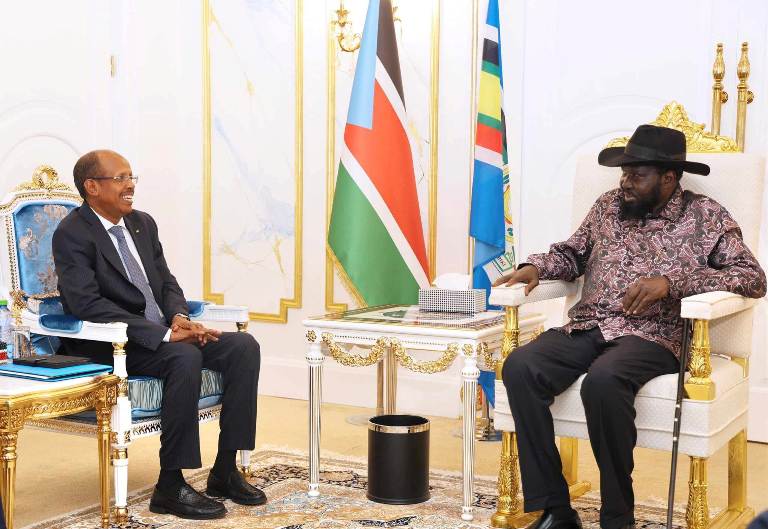Djibouti has proposed an alternative oil export route for South Sudan, providing a solution to the risks posed by the ongoing conflict in Sudan, which has disrupted South Sudan’s main export pipeline.
Djibouti’s Foreign Minister, Mahamoud Youssouf, made the offer during a meeting with South Sudanese President Salva Kiir in Juba.
The proposal involves creating a new oil corridor that would link South Sudan through Ethiopia to Djibouti, offering a stable and secure alternative for oil exports.
Youssouf highlighted that this move would not only mitigate the risks associated with relying solely on Sudan but also enhance regional economic integration. He emphasized that diversifying export routes would benefit both countries and strengthen their economic ties.
- Advertisement -
In addition to the oil export proposal, Youssouf expressed Djibouti’s support for lifting international sanctions on South Sudan to spur its economic development. This gesture underscores Djibouti’s commitment to fostering peace and stability in the region.
South Sudan’s Foreign Minister, Ramadan Mohamed Goc, confirmed that Djibouti’s President, Ismail Omer Guelleh, sent a special message reaffirming Djibouti’s dedication to regional cooperation.
Djibouti is also seeking South Sudan’s support for its bid for the African Union Commission chairperson seat, signaling its broader strategic ambitions in the region.
Currently, South Sudan is heavily reliant on a pipeline running through Sudan for its oil exports. However, the ongoing conflict in Sudan has severely disrupted oil flows, threatening South Sudan’s economic stability.
Djibouti’s proposal offers South Sudan a valuable opportunity to reduce its dependence on Sudan and safeguard its vital oil revenue.
- Advertisement -
The potential new export route through Djibouti would not only provide a more secure pathway for oil exports but also promote greater economic collaboration between South Sudan, Ethiopia, and Djibouti, further solidifying Djibouti’s role as a key hub in East Africa.










